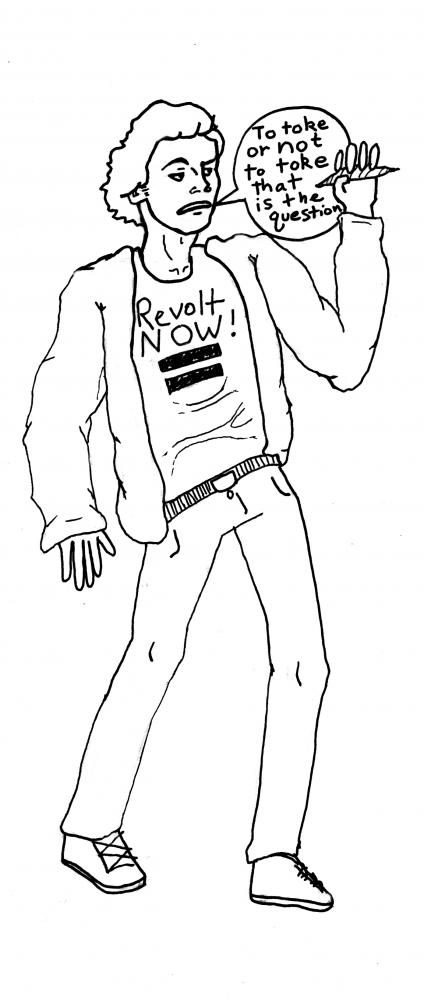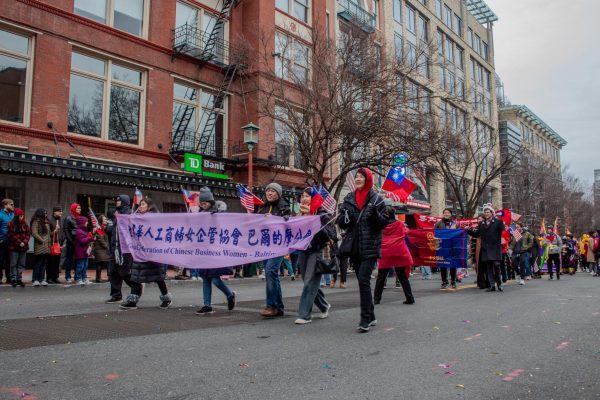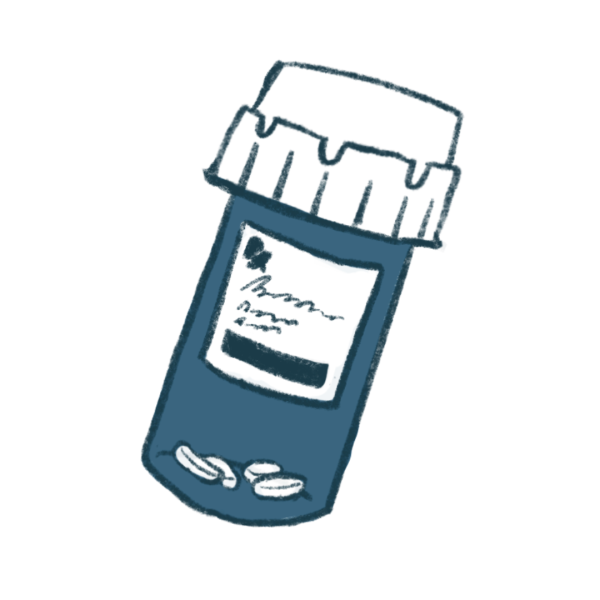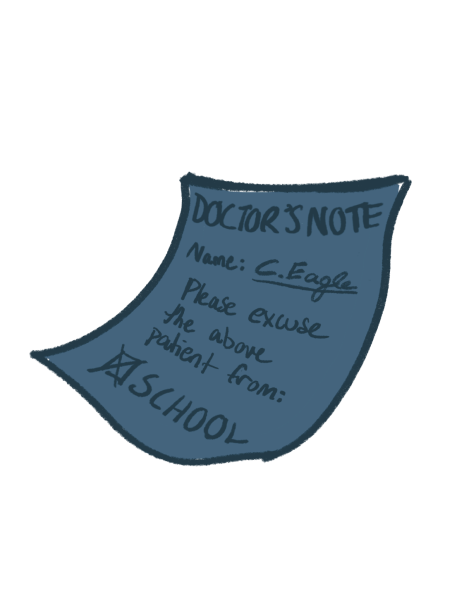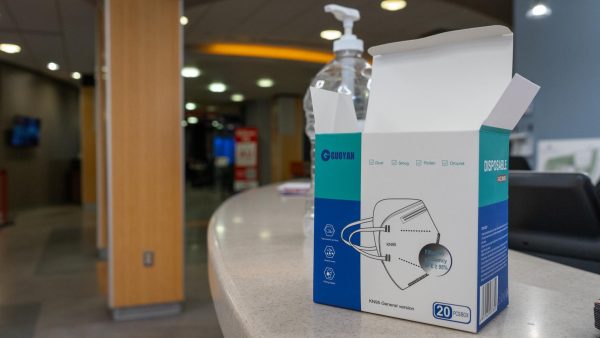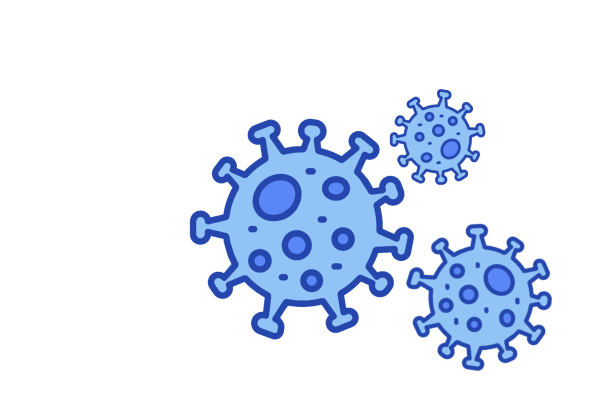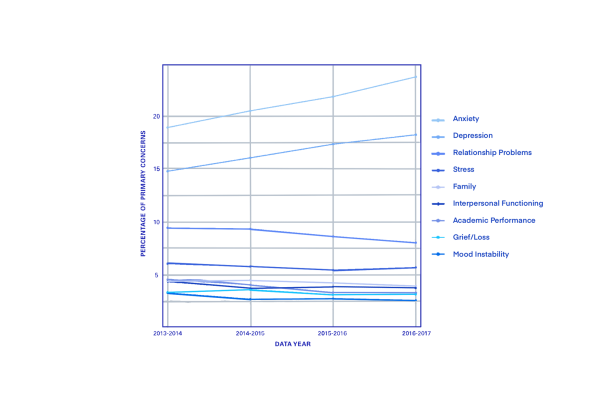Drugs, Alcohol and Activism
Marijuana is a gateway drug. Drugs will fry your brain like an egg. If you take ecstasy once, you could die. Scared yet?
If you paid attention in high school, these are just a few of the lessons you should remember. They are also lessons that ring rather hollow after even limited interaction with people who actually use drugs and alcohol. If any of it were true, almost everyone in college would have fried eggs for brains and many would be dead several times over.
The hyperbolic approach to drugs and alcohol that American high school students experience is just one example of how American culture has utterly failed to grapple with the reality of drug use. From AU policy to even our own progressive community, the damage caused by hyperbole and misinformation surrounding drug use is indisputable, tainting activist causes and perpetuating stereotypes. In order to counteract mechanisms of misinformation, it is critical to demonstrate how institutional and cultural approaches to drug and alcohol use are harming our society.
AU’s Campus: High and Dry
According to the 2008 Core Alcohol and Drug Survey performed at AU, as many as 43.3 percent of undergraduate students reported having used marijuana in the past year while 14.4 percent reported having used a drug other than marijuana. Twenty-three percent of undergraduates characterized themselves as current marijuana users.
If these numbers are accurate, it is worth noting that out of an estimated 1,400 undergraduate marijuana users, only 102 drug violations were reported at AU during the 2009-2010 academic year. Robert Hradsky, Assistant Vice President and Dean of Students at AU, said the university tries to “take an educational rather than punitive approach” to drug and alcohol use.
Shane McCarthy, Co-President of Students for Sensible Drug Policy at AU, agrees, saying that SSDP has been largely successful in making the judicial process here “more accountable to students and more proportional to the violation that happened.”
Where McCarthy said there has not been a significant policy improvement is the question of implementing a Good Samaritan Rule, which would allow individuals who alert AU officials to the possibility of a drug overdose to not suffer any judicial consequences.
Students surveyed argue that AU’s dry campus policy is both ineffective and has numerous unintended, harmful consequences. Hradsky explained that because most students in the dorms are underage and the university is required to adhere to the law, it’s simpler from an enforcement perspective to ban student alcohol use at AU entirely.
One graduate student in SPA expressed incredulity at the dry campus policy, saying the policy — instead of allowing small groups of friends to stay in the dorms to drink — pushes students to take rides from strangers to off-campus locations, where they will need a ride back. He went on to say that even a look at the LA quad during Welcome Week reveals the “utterly bizarre and dangerous result of the university’s dry campus policy.”
For his part, Hradsky clarified that organizations have the ability to legally offer alcohol at events on campus. In addition, he says AU wants to encourage students to make responsible decisions, and to this end, the university has created educational programs including a requirement for incoming students to take a drug and alcohol class before starting school.
Just Say “Yes!”
Since the 1960s, drug use has played a significant role in the activist culture of the left. Because of this, negative stereotypes pervade how people view college students who pursue both activism and drug use, causing people to dismiss them as “hippies” or just stoned college activists. This perception, however, masks the complex and evolving role that drug use plays in college progressive culture broadly — and specifically at AU.
One major question: what is it about drug use that makes it especially attractive to activists on the left? One SIS sophomore believes the connection may be that both activism and drug use “are manifestations of an intrinsic drive to challenge the status quo, to be unafraid to try new things, to be compelled to find better solutions and to discover a sense of peace.”
According to a junior in SPA, the connection is even more direct because drug use is itself a revolutionary act. He explained that drug use is “such a positive act of rebellion against untruthful social standards and the oppressive drug war, that it makes what should be a normal every day thing an act of revolution.”
Anti-Drug Activism
Other college activists see drug use as much more of a burden than boon to progressive activism. Many express concern that the stereotype of the “stoned hippie” makes it difficult for college activists to be taken seriously.
Mark Andersen, the co-founder of Positive Force DC and a well-known straightedge activist in the District, also directly questions the assumptions that drug use is somehow a revolutionary act or a critical part of activism.
“If you want to have a good time, then fine. People have been getting high, intoxicated or whatever for almost as long as human history. Just don’t claim that it’s revolution,” Mark opined in an interview with AWOL. “If revolution comes about from what we consume rather than what we create, then I think we’re lost.”
It’s the Person, Not the Drug
The reality of drug and alcohol use does not justify the extreme rhetoric surrounding it. Drugs are neither inherently good nor bad.
In a response to an email query, AU Psychology Professor Alan Silberberg explained, “What determines whether you see persistent drug use — despite its potentially devastating effects in terms of relationships, employment and one’s arrest record — is not the drug, but the person who is using the drug.”
What this means is that we need to confront the realities of how and why drugs are abused and not romanticize their benefits.
For the US, this means ending its devastating War on Drugs and beginning anew with the understanding that in order to deal with the negative effects of drugs, it needs an entirely different social health-based approach.
For AU, this means ending the dry campus policy and implementing a Good Samaritan Rule in order to prioritize student safety over strict enforcement of anti-drug and alcohol use rules.
For AU activists, this means recognizing that while responsible drug use has its place in activism, it is not the sole instrument of revolution.
Illustrations by Margaret Hayford.
This piece has been edited to remove a quote from a source.


